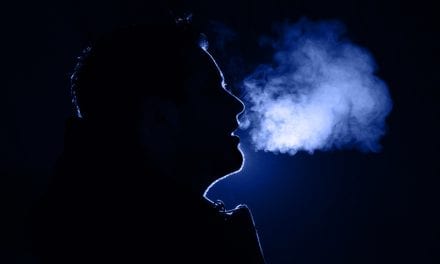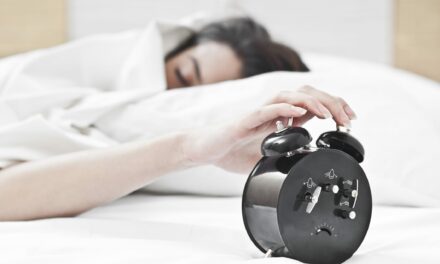The latest data from the SleepScore Campaign finds Americans are sleep deprived and more stressed out in the time since the November 8 election than at other times in the two years of baseline data, according to data collected in a major national survey underway by SleepScore.com. Additionally, after a significant spike in stress levels and reduced sleep time on election night (November 8), the Eastern and Western Time Zones of the United States have not returned to normal sleeping patterns.
Early data from the survey, to be concluded and released in January, is showing a recent, troubling trend of sleep deprivation and higher stress levels collected on the ResMed S+ device. Unlike self-reported measures and basic tracking devices, the study relies upon the S+ sleep tracking device using SleepScore technology by ResMed to measure detailed sleep patterns, breath by breath, all night long. The S+ by ResMed monitors and calculates the four stages of sleep (onset, light, deep, and REM), sleep duration, nightly awakenings, and light and temperature levels in order to assign users a nightly “SleepScore,” between 0 and 100. Launched on Oct 20, the survey aims to cumulatively build over 1.5 million records of accurate sleep data and assess the nation’s sleep fitness, while determining a national SleepScore.
“This critical survey is detailing the extent of our sleep crisis in America. Fatigue and sleep are the issues I am asked about most. If you type ‘why am I so..’ into any search engine, it will default to a question about fatigue, tiredness, or sleep,” says Dr Mehmet Oz, host of The Dr. Oz Show, in a release. “This early data on sleep time and stress, while confirming what we knew intuitively, is alarming and speaks to the urgency for Americans to make a healthy sleep plan a priority.” Oz will be revealing the full results of the Million Nights SleepScore Survey and giving America its own SleepScore at the Consumer Electronic Show in Las Vegas January 6.
A sample of records were examined from a pool of more than 18,000 users of the S+ device, which logs sleep activity and reports other metrics including stress levels and alcohol consumption. The users of the S+ devices are the source of the data for this survey, one of the largest objective sleep studies currently underway, with the results to be revealed in January 2017.
The most dramatic variations in sleep patterns occurred on the nights of November 8 (election night) and 9 (day after election). The data showed significant changes in sleep times and stress levels on the East and West Coasts and some of the lowest levels recorded since the S+ device was launched in October 2014. None of the data collected explored political affiliation, so it’s not possible to associate the elevated levels of stress and alcohol with any voter groups; however, it is safe to say that the 2016 election was unique in how it unfolded and the level of emotional interest on the part of the public. The data from that evening and in the week that followed shows an associative link between the intensity of the climate surrounding the election and stress levels on public health.
“We are seeing results in our data collection that clearly demonstrate how stressed people have been during in these last weeks and on the night of the election,” says Colin Lawlor, spokesperson for the campaign. “Further, in these last weeks, we are at an all-time high in levels of stress and sleep deprivation which should be concerning for the whole country. It’s incredible data that shows that the long-term sleep crisis continues and real time major events can exacerbate it.”
Interesting data is as follows:
According to SleepScore’s National Sleep Survey, Americans lost an average of 25 minutes of quality sleep on Nov 8, the night of the presidential election. Additionally, the SleepScore Survey reported that the average SleepScores for Nov 8 and Nov 9 were the lowest on record, when compared to the average SleepScores of 2015 and 2016.
Additionally, overall average stress levels were elevated across the country as 20% more people reported stress on election night, with the highest stress levels being reported on the East and West Coasts.
Comparing pre-election week data with November 8th (election day) and November 9th (day after election):
- Data across the states falling in the Eastern & Pacific Time zones showed a huge spike in people reporting stress, around 28% when compared to 16% people reporting stress in the states of Central and Mountain Time zones.
- Sleep metrics reported a 6% drop in sleep time compared to the previous week in the Eastern and Pacific states while states in the Central and Mountain Time zones reported just a 2% drop.
- Data that analyzed a population of “good sleepers,” according to the S+, revealed that the West Coast reported the highest stress levels, approximately 49% of S+ users. East Coast “good sleepers” reported elevated stress levels, around 15%, when compared to just 2% & 8% in the central & mountain time zone states, respectively.
- Data that analyzed a population of sleep deprived individuals, according to the S+, revealed that the Western states also reported the highest stress levels, approximately 26% of S+ users. Sleep deprived S+ users on the East Coast reported elevated stress levels, around a 9%, when compared just 4% & 2% increased stress levels in the in the central & mountain time zone states respectively.
This analysis clearly demonstrates the distress among the people on the West and East Coasts during this year’s presidential election. Have stress levels and sleep metrics improved in the three weeks that have transpired since the election results came out?
According to the data:
- The states on the West Coast, still have a long way to go before returning to normalcy as stress levels still have not returned to pre-election levels and still stand at 30% of users reporting high levels of stress. The East Coast has shown a partial recovery but still show some signs of increased stress.
- Data since the election shows that the S+ users in the Central and Mountain time zone states have fully recovered and have actually reported lower levels of stress compared to the pre-election levels.
- While the West and East Coasts appear to still be reeling under stress and inching towards recovery, it is safe to say that the Central and Mountain time zone states have resumed normalcy and are feeling less stressed since the election occurred.
Michael Breus, PhD, clinical psychologist and both a Diplomate of the American Board of Sleep Medicine and a Fellow of The American Academy of Sleep Medicine, and the author of the recent book The Power of When says, “The early data from this landmark survey while alarming, confirms what I have been seeing in my practice for the last several years—an increased number of people who are having trouble developing healthy sleep hygiene, sleeping less, and problems managing stress in their lives.”





